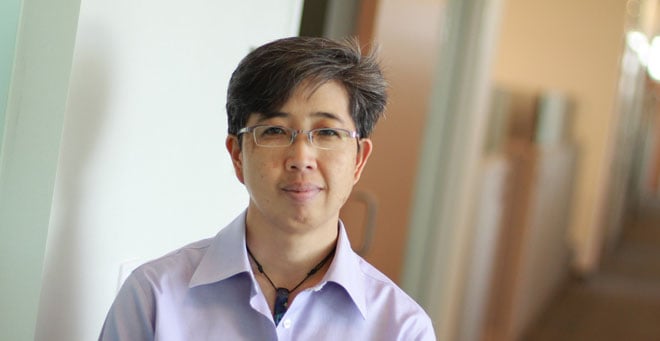
Jennifer Tjia, MD, MSCE, professor of population & quantitative health sciences, knows from her years as a geriatrician and palliative care physician that unpaid caregivers for hospital patients are “the glue that holds the system together, one patient at a time.” She also knows from personal experience how demanding the role of caregiver can be.
Dr. Tjia and her research team were recently awarded a $4.1 million, five-year grant from the National Institutes of Health to study caregiver engagement in serious illness and the impact of structural barriers, including racism.
The estimated 66 million caregivers in the United States, who can be relatives, partners or friends, are particularly critical for hospitalized patients with serious illness, according to Tjia. They assist with complex decision making, care coordination and patient advocacy. Staffing shortages have stressed hospital care further and made caregivers even more important.
When Tjia’s elderly father, who had multiple health problems, fell and hit his head a few years ago, she was able to drop everything, fly to California and be at his hospital bedside around the clock. Having her be his eyes and ears and monitoring his care allowed him to avoid surgery and a nursing home stay. He went home from the hospital as functional as he was before the fall.
“I started thinking about all the patients I see who have to work hourly, can’t just drop everything or fly across the country to be a caregiver. Their seriously ill family member or friend might have different outcomes.” said Tjia.
Caregiving is stressful. Up to 20 percent of caregivers retire early or quit their job, 22 percent exhaust short-term savings, 20 percent have late or unpaid bills, and 11 percent are unable to afford basic expenses like food, according to Tjia.
The UMass Chan team is conducting a mixed-method study for the Equity in Caregiving Project, collecting quantitative data and combining it with qualitative case studies. Tjia hopes to “disentangle all these complicated barriers to how family caregivers can be engaged when somebody is in the hospital with serious illness.”
Using the Massachusetts all-payer claims database, researchers will analyze patients with serious illness and their patterns of hospitalization across the state. They will look at factors such as how often those patients receive palliative care, go to the ICU and have goals of care conversations. They will also measure patients’ lengths of stay and their health outcomes.
Plus, researchers will be able to link those patients to the communities they come from, their race and ethnicity, and the level of public and economic resources—such as transportation, income and education—in those communities for patients and their caregiver.
The second part of the study includes one-on-one interviews with caregivers, hospital clinicians and administrators.
The research team is working with a diverse community partner-expert advisory panel to inform the questions they ask and interpret findings from multiple perspectives.
“What we’re really excited about is to not just study this, but to try to come up with some solutions and policy recommendations at the local and state level,” Tjia said.